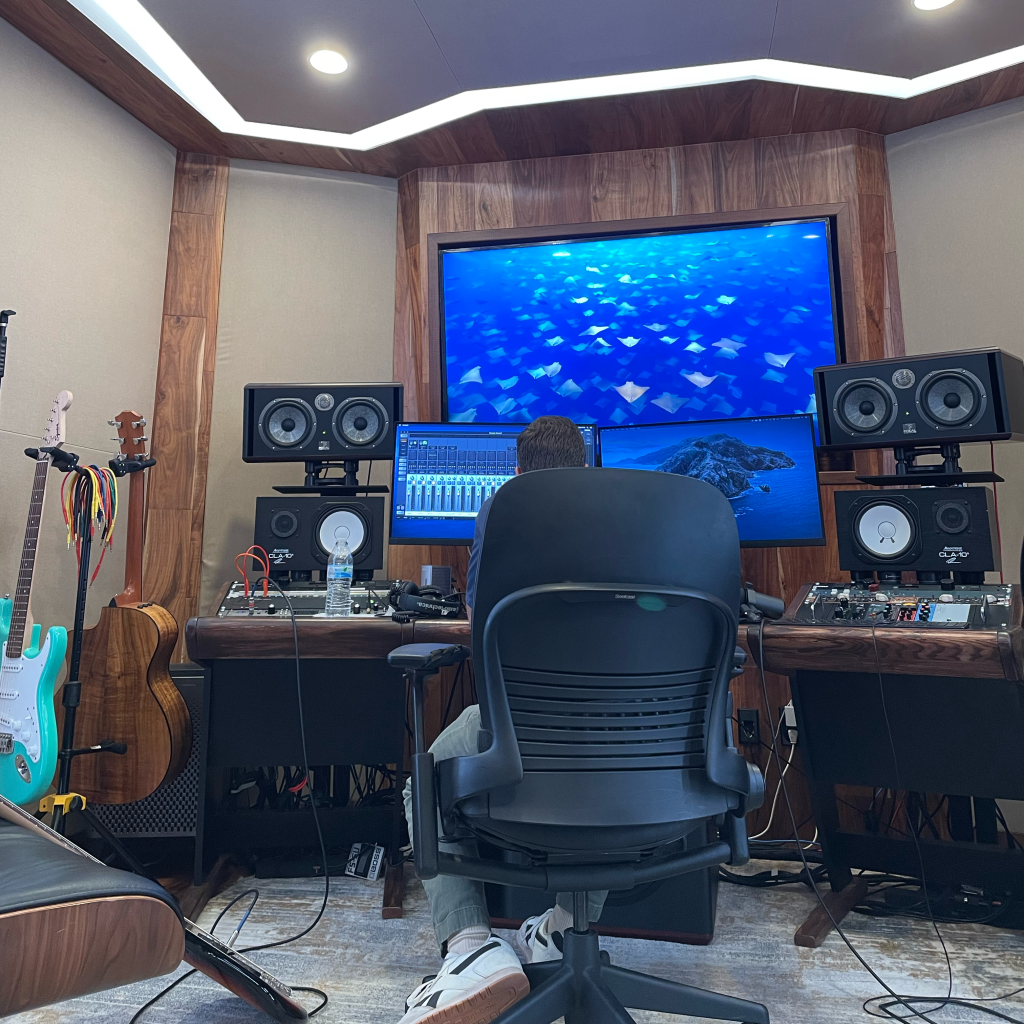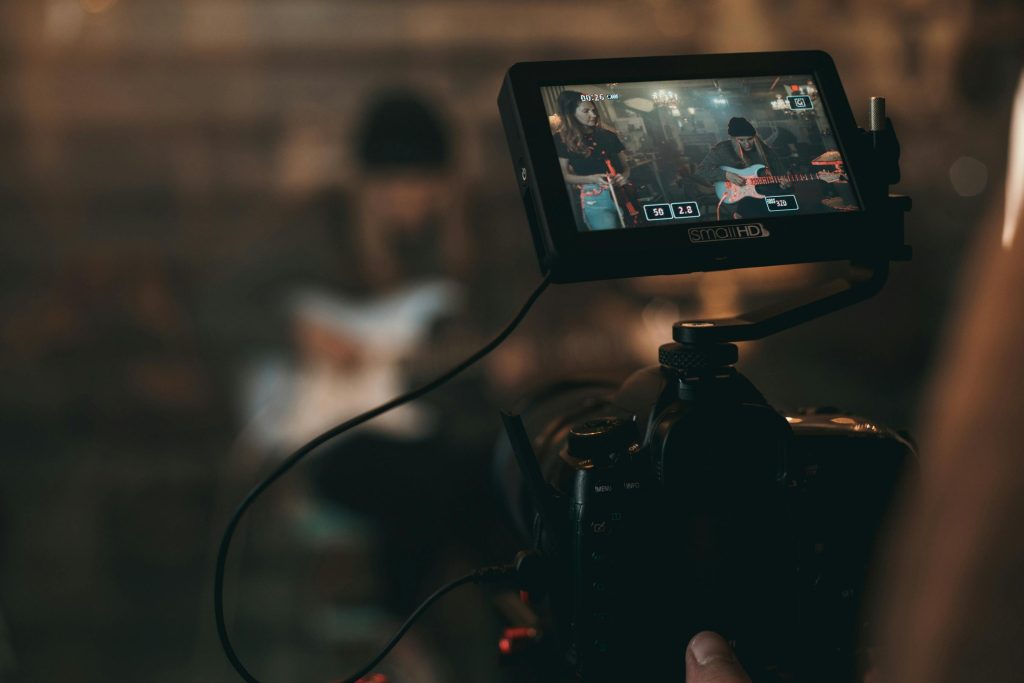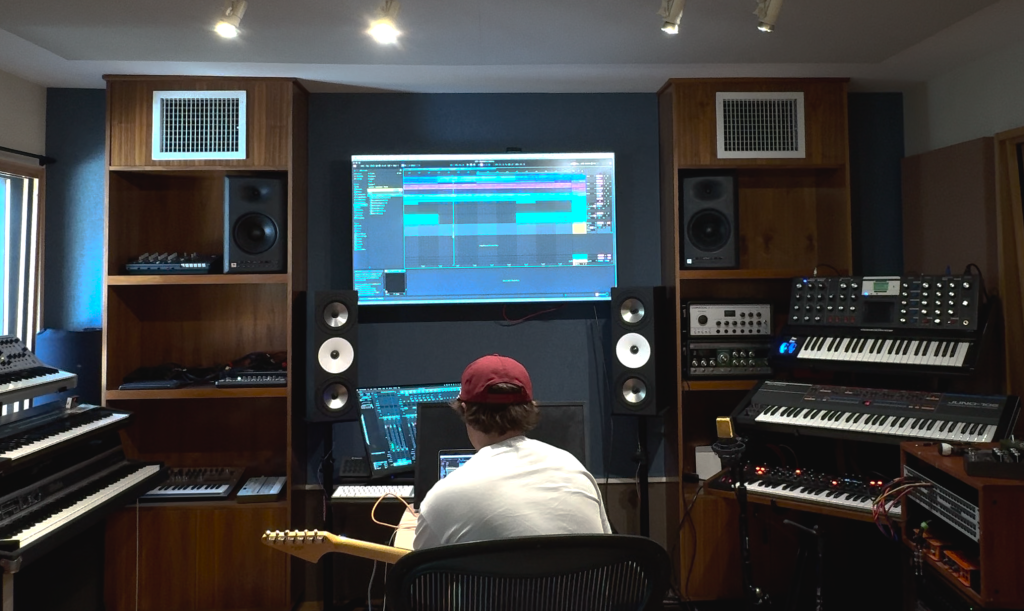Though he isn’t a household name (yet), Ben Porter, known professionally as benners, has had his music featured in prominent places such as Nordstrom stores across the United States. The London-based record producer’s compositions have also landed major sync placements, meaning they are licensed for use in high-profile projects, such as the Champions League Final broadcast featuring Kojey Radical and Swindle. With over 35 songs scheduled for release in 2025, Porter is steadily gaining momentum.
Porter is now poised to establish his name in the R&B and music production space and take the next big step in his career as a musician and thought leader on the ethics of generative AI and music rights.
“We’re not trying to fight the future, we’re trying to make sure it’s built on the values that made music matter in the first place,” Porter says.
Ben Porter’s Cross-Continental Approach
Porter has always been passionate about music. It is an art form with which he has been heavily involved since he was a small child. He grew up in what he describes as a “deeply musical household” in Oxfordshire in the United Kingdom.
“My grandfather was a renowned classical organist in the Glasgow Cathedral in Scotland, and my uncle was a professional opera singer in Germany’s Munich Opera House, so music was always more than a hobby. It was part of our family’s DNA,” Porter explains.
At the age of seven, he began playing the guitar. He learned to play a variety of musical styles, ranging from AC/DC to Handel. His musical ability was apparent at a young age, and he won multiple local music awards. As he grew older and learned additional musical instruments, his musical taste evolved. In his teens, he was in an indie band and played on festival stages throughout the UK. He even played in the legendary Abbey Road studio.
At 18, he discovered the three musical genres that would change his life and shape his music career: Jazz, R&B, and Soul. He immersed himself in the history and songs of the genre, learning the “sonic textures” of the music. He started producing demos almost immediately.
Soon, he was working as a London-based music producer with an internationally diverse group of artists and producers, which brought him to his current plans. His next step is to sign with a record label and move to the United States.
“My production fuses soulful live instrumentation inspired by the classical and gospel influences from my family’s upbringing with modern digital textures. Ultimately, I’m building a career that bridges continents, combining UK soul with other global influences, and I’m just getting started,” Porter says.
A Thought Leader on AI-Generated Music
As generative AI music continues to make headway in the music industry, the sector has had serious discussions about how it will reshape the creative industries. There are deep concerns about “copyright infringement, lack of transparency, absent licensing frameworks, and the erosion of human creativity in songwriting and composition.” These are serious matters, which Porter is aware of and has discussed at events with major organizations, including The Music Business Association, Byta, and A2IM.
“I advocate for a future in which technological innovation supports creativity, not replaces it. I want to help protect the rights of creators while shaping a responsible future for music and technology,” Porter explains.
With his distinctive fusion of musical traditions, innovative production, and forward-thinking advocacy, Ben Porter is a rising star to watch and a vital voice shaping the future of music in the rapidly evolving digital realm.
BEN’S REWORK BELOW…
Smarter Sessions: How AI Is Transforming Music Production

Artificial intelligence is transforming music creation, fueling both innovation and industry-wide debate about its role in the creative process. However, while generative AI has dominated headlines for its ability to generate entire songs from a single prompt, the quiet evolution of AI-assisted production has been unfolding behind the scenes for decades. So, from a production standpoint, the real question isn’t “Will AI replace me?” but rather “How can AI work for me?” We asked UK-born record producer and AI expert Ben Porter (AKA benners) to break down just why understanding this context is so crucial for modern music producers.
“There’s a tendency to believe that AI is a new phenomenon,” Porter explained during a 2024 industry keynote titled Ethical AI in Music Production, hosted by music metadata platform Byta. “But the reality is we’ve used algorithmic composition within music for the last 75 years.”
The History of Generative AI in Music Production
Indeed, the earliest example dates back to 1956 with the Illiac Suite, composed using one of the world’s first computers. In the 1980s, systems like David Cope’s EMI (Experiments in Musical Intelligence) introduced rule-based AI to stylistic composition. Generative AI in its current state emerged around 10 years ago, with Google’s Magenta—an AI research project—creating a 90-second piano melody generated by a recurrent neural network (RNN) trained on MIDI files.
A Positive Use Case: AI-Assisted Music Production
Over the past decade, a range of intelligent, production-assisting tools have emerged. These tools aren’t about replacing producers—they’re about enhancing precision and efficiency. A few standout examples include:
- The iZotope Suite: a collection of AI-powered plugins for mixing, mastering, and audio repair.
- LANDR: An online platform (and optional plugin) that uses machine learning to automate audio mastering.
- Oeksound’s Soothe: A smart EQ plugin that automatically reduces harsh frequencies in real time.
For many music producers, technology like this represents an opportunity to optimize their workflow. No longer do hours need to be spent in the studio cutting out a resonant frequency, or polishing a master. Creatives can instead focus on exactly what they do best—making the music. This is echoed by Porter.
“It’s like having a co-pilot,” Porter explains. “They handle the more mundane tasks—like EQ tweaks or audio repair—so I can focus on performance, arrangement, and emotional nuance.”
The Four Faces of AI in Music Creation
Porter outlines four primary ways AI is being used in music creation today:
- AI-Assisted Creation: plugins and tools that support, but don’t replace, human decision-making. For producers, this is by far the most beneficial.
- User-Driven Generation: Systems like BandLab SongStarter that remix or assemble user-selected stems.
- AI-Imitative Generation: Tools that mimic the style or voice of real artists, often for derivative works.
- AI-Composed Music: Fully generative systems (e.g. MusicGen, MusicLM) that can compose new tracks without human input.
An Ethical Lens on AI-Assisted Music Production

Naturally, with greater capability comes greater responsibility—and generative AI raises serious ethical concerns around consent, compensation, and originality. For Porter, however, this can be separated from productive, creativity-enhancing uses of the technology. For him, AI is to thank for some of the great music of late.
“An example I always cite is Now and Then by The Beatles,” Porter says. “It used AI ethically—to isolate John Lennon’s vocal from a rough tape, not to replicate or fabricate it. That’s a productive use of the tech, not a replacement of human artistry.”
Porter’s dual perspective—as both a record producer who’s collaborated with Grammy-winning artists and a recognized thought leader in the AI conversation for MatchTune—offers rare clarity on the issue. His view? For better or worse, AI is going to exist in music. You don’t need to become “an ethicist” overnight, but you do need to “understand the tools you’re using—what they’re built on, and how they might serve you.”
How Producers Can Leverage AI—Responsibly
For producers looking to integrate AI into their studio flow, Porter offers a few starting points:
- Start with Assistive Tools: Explore smart plugins that help you mix, master, or clean audio more efficiently.
- Avoid Generative Creation: Be cautious of tools that claim to mimic famous artists or copyrighted sounds. Even if you won’t get caught, consider the broader impact you’re contributing to.
- Stay Informed: Follow updates on tools, rights, and regulation—especially as laws evolve globally.
“AI can absolutely accelerate creativity,” Porter says. “But it’s no substitute for vision or taste. The best artists will learn how to harness it—not rely on it.”





















